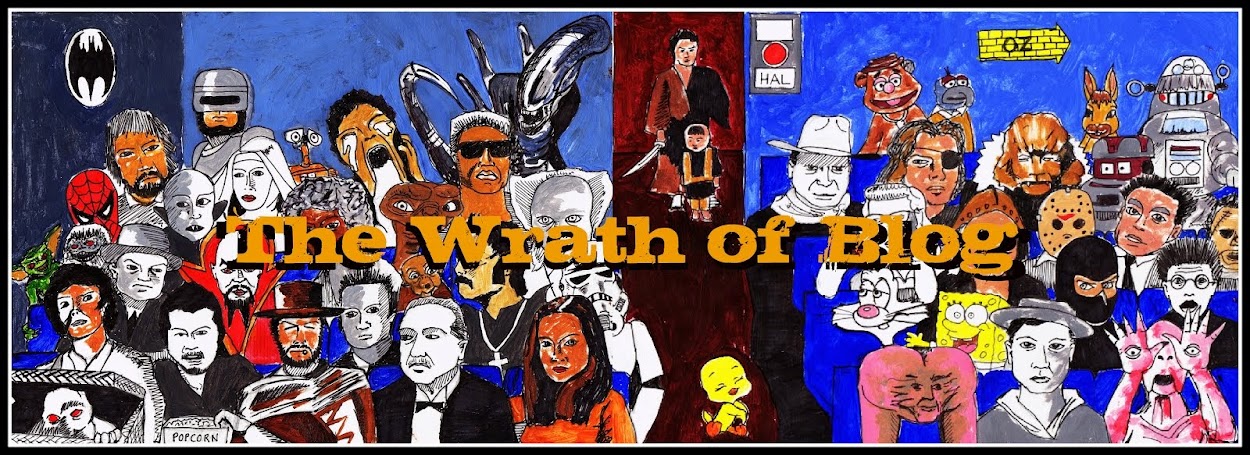 Like last time, the film tells various intertwining stories. Marv (Mickey Rourke) wakes up in a car wreck surrounded by the dead bodies of frat boys. Unable to remember how he got there, he begins to re-trace his steps. A cocky young gambler, Johnny (Gordon-Levitt) arrives in town and immediately starts fleecing a joint of all it's money. Insisting that he is allowed into the high stakes game with his good luck charm Marcie (Julia Garner), Johnny finds himself pitted against the corrupt Senator Rourke (Powers Boothe), who he wipes the floor with. He is warned to leave town quickly lest he feel the Senator's wrath, but the arrogant young man decides to treat Marcie to a night on the town instead.
Like last time, the film tells various intertwining stories. Marv (Mickey Rourke) wakes up in a car wreck surrounded by the dead bodies of frat boys. Unable to remember how he got there, he begins to re-trace his steps. A cocky young gambler, Johnny (Gordon-Levitt) arrives in town and immediately starts fleecing a joint of all it's money. Insisting that he is allowed into the high stakes game with his good luck charm Marcie (Julia Garner), Johnny finds himself pitted against the corrupt Senator Rourke (Powers Boothe), who he wipes the floor with. He is warned to leave town quickly lest he feel the Senator's wrath, but the arrogant young man decides to treat Marcie to a night on the town instead.Years before he had his face operated on to become Clive Owen in the first film, Dwight (now played by Josh Brolin) is a private investigator who we first meet spying on businessman Joey (Ray Liotta) and his young lover Sally (Juno Temple). He is called on by his old flame Ava Lord (Green) who claims she is being abused by her husband (Marton Csokas) and his bodyguard Manute (Dennis Haysbert, replacing the late Michael Clarke Duncan). Dwight cannot get her out of his head and employs Marv to help him on his rescue mission. Meanwhile, distraught at the suicide of John Hartigan (Bruce Willis), stripper Nancy (Jessica Alba) is drinking heavily and seeks revenge on the man who drove her former lover to kill himself, Senator Rourke.
Nine years ago, Sin City was, visually, a jaw-dropping exercise in using real actors against a green screen background. Nowadays, this effect is used commonly, even in TV shows, so it's a testament to Rodriguez (working as cinematographer) that the film still looks absolutely splendid. Beneath the beauty of it's exterior lies something all the more hollow, as the actors - the men and women - compete for the crown of being the hardest bastard with the graveliest voice. With such deliberately blunt dialogue, the film is basically made up of scenes of people acting tough to one another, usually resulting in machine-gun fire or somebody being punched through a window.
The cast all deliver though, and although it's nice to see Powers Booth get the screen-time he deserves (his Cy Tolliver in HBO's Deadwood is still one of the my all-time favourite TV villains), Eva Green walks away with the movie. Embodying all the traits of the great screen femme fatales, she is allowed to go further than the stars that came before for her and be that more sexier, revealing all to Rodriguez's obviously admiring camera. She seduces every man she comes across, including Christopher Meloni's lovestruck cop, who fall at her knees, and it's not hard to see why. Green single-handedly saves this film from becoming a nihilistic and empty exercise in violence, which was fun and fresh the first time around, but with nine years of preparation, you would expect more.
Directed by: Frank Miller, Robert Rodriguez
Starring: Mickey Rourke, Jessica Alba, Josh Brolin, Joseph Gordon-Levitt, Eva Green, Powers Boothe, Dennis Haysbert, Rosario Dawson, Bruce Willis
Country: Cyprus/USA
Rating: ***
Tom Gillespie

















